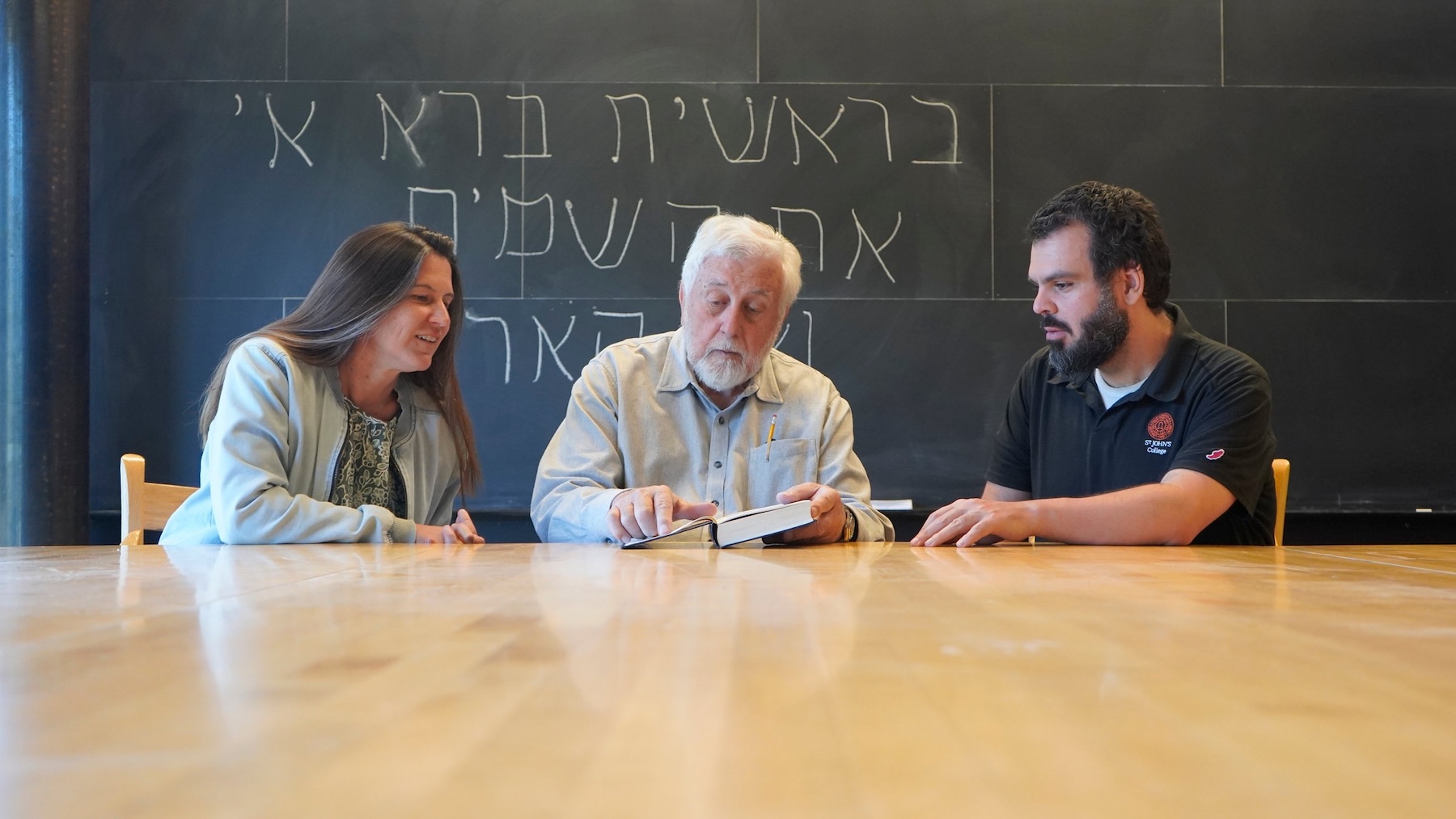
SANTA FE, N.M. — St. John’s College in Santa Fe, New Mexico, has announced a new graduate program that reshapes what it means to study the Great Books in the 21st century. The Master of Arts in Middle Eastern Classics (MAMEC) offers a one-year, in-person course of study focused on the great texts of Jewish and Islamic civilizations—texts that are often overlooked in Western curricula, but which have shaped the course of philosophy, religion, and poetry across centuries.
While these two traditions have often been portrayed as being in tension, MAMEC will provide students a singular opportunity to immerse themselves in the original Jewish and Islamic texts, far from the rhetoric of the last 150 years of Middle Eastern politics. Together, faculty and students will learn through the close reading of original texts and respectful discussion what philosophers such as Maimonides, Rumi, ‘Ibn al-‘Arabī, and Judah Halevi thought and wrote. Students will read English translations of great works from both traditions, while also having the choice between studying classical Arabic or Hebrew.
“These texts are not marginal or secondary writings and once stood at the center of the West’s intellectual life,” says David Carl, associate dean of the graduate programs. “By giving these texts their rightful place alongside the classics of ancient Greece and modern Europe, St. John’s continues our essential and ongoing work of revisiting and revising the Western canon in light of its fuller, richer intellectual inheritance.”
Faculty on the college’s Santa Fe, New Mexico, campus spent more than 15 years studying and developing the new program. Ahmed Siddiqi, a former faculty member and ongoing curricular advisor to the program, addresses the tendency to overlook centuries of human thought: “It’s very common to go from an author like Augustine, who died in the fifth century, to authors like Anselm and Thomas Aquinas who died in the 12th and 13th centuries. One of the things we attempt through this program is to close that seven-century gap in scholarship.”
MAMEC is rooted in St. John’s almost 100-year tradition of reading primary texts in small, conversation-driven settings. Its curriculum includes the Hebrew Bible, Islamic philosophy, classical and medieval Jewish and Muslim thought, Persian poetry, and mysticism. Students also study language, and choose Hebrew or Arabic, allowing for more direct access to the original texts.
The new master’s program was established thanks to the generosity of the college’s donors and alumni. It was made possible through a $1 million anonymous matching grant, met by lead gifts from Santa Fe residents Pamela Saunders-Albin and Richard and Cheryl Groenendyke. Their support enables the college to offer this new opportunity while preserving its distinctive model of shared, seminar-based education.
“In this program, students don’t just encounter two religious or intellectual traditions—they encounter one another,” says St. John’s College President J. Walter Sterling. “Through slow reading, shared inquiry, and serious conversation, they begin to see the common questions at the heart of both traditions—and, perhaps, the shared humanity at the heart of all education. At a time when polarization is often presumed, the seminar table remains a place where differences can be explored without division.”
Saunders-Albin, an honorary alumna of the college and Vice Chair of the college’s Board of Visitors and Governors, shares: “The launch of the Middle Eastern Classics program couldn’t be more timely. Once again, St. John’s lives up to its reputation of being the most contrarian college in America by offering a study of ancient wisdom without the modern noise of secondary sources.”
Richard and Cheryl Groenendyke, Graduate Institute alumni and longtime donors to the college, also support the effort: “Our experience at the Graduate Institute opened up a lifelong commitment to serious inquiry and meaningful dialogue. We’re pleased to support a new program that builds on that foundation and expands the reach of this kind of education. The MAMEC program is a way for more people to access the rigor, beauty, and generosity of spirit that define St. John’s.”
Applications for Fall 2026 open in September. For more information, visit sjc.edu/mamec.
ABOUT ST. JOHN’S COLLEGE
In an age of political division and digital distraction, St. John’s College offers the education America needs. Through close reading of 200 great books across 3,000 years—from Plato to Toni Morrison, Augustine to Charles Darwin, Euclid to Albert Einstein—students wrestle with the deepest questions of law, justice, freedom, and human good. At a time when many institutions chase trends, St. John’s returns to first principles. The third-oldest college in America, with campuses in Santa Fe, New Mexico, and Annapolis, Maryland, St. John’s is a refuge for civic renewal, civil discourse, and intellectual courage. Learn more about our undergraduate, graduate, and lifelong learning programs at www.sjc.edu.
“St. John’s is a high-achieving angel hovering over the landscape of American higher education” — Los Angeles Times
# # #
MEDIA CONTACTS:
Carol Carpenter, VP, Communications, St. John’s College Santa Fe, [email protected], 323-459-4661 (text for quicker response)
Sara Luell, Senior Director of Communications and Operations, St. John’s College Annapolis, [email protected]
Disclaimer: The views and opinions expressed in this article are those of the authors and do not necessarily reflect the official policy or position of RNS or Religion News Foundation.
